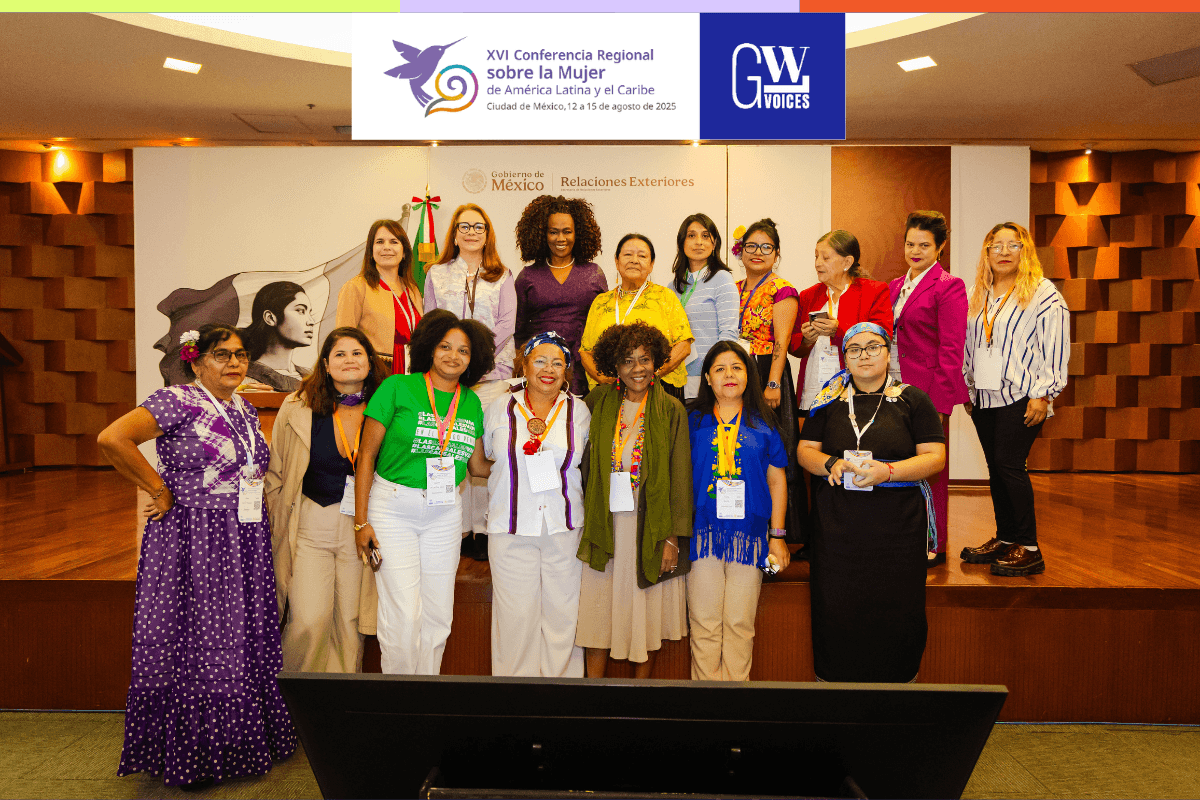Women leaders call for transforming the care economy to achieve gender equality and sustainability in Latin America and the Caribbean

Share
Mexico City, August 11, 2025 – As part of the XVI Regional Conference on Women in Latin America and the Caribbean, the high-level side event “Leading and Caring: Towards a Care Economy that is Fair for Women and Mother Earth” was held, organized by GWL Voices with the co-sponsorship of the Fund for the Development of the Indigenous Peoples of Latin America and the Caribbean (FILAC) and the support of UN Women LAC.
The gathering brought together women political leaders, representatives of social organizations, experts, and authorities, with a panel composed of Ms. María Fernanda Espinosa, Executive Director of GWL Voices and President of the United Nations General Assembly, 2018–2019; Ms. Epsy Campbell, Member of GWL Voices, former Vice President of the Republic of Costa Rica, President of the Afro-Political Women’s Front; Ms. Grace Nogales Haro, Advisor to the Executive Secretariat of RedLAC; Ms. Dalí Angel, Coordinator of Program Planning and Implementation, Projects, Youth, and Indigenous Women at FILAC; and Ms. Otilia Lux de Cotí, Advisor to the Indigenous Women’s Emblematic Program (MILAC), and former Vice President of the United Nations Permanent Forum on Indigenous Issues. The panel discussed concrete proposals to advance a care economy centered on gender equality, social justice, and environmental sustainability.
During the dialogue, panelists agreed on the urgent need to recognize, professionalize, and redistribute care work, as well as to integrate ancestral knowledge and the leadership of Indigenous, rural, and Afro-descendant women in building an ecological ethic of care.
It was highlighted that the care economy and climate action are closely interconnected: caring for people cannot be separated from caring for the ecosystems that sustain life. Participants stressed that promoting sustainable practices, recovering ancestral knowledge, and ensuring equitable access to resources such as water and land are essential steps to address both the care crisis and the environmental crisis.
“Prioritizing the sustainability of life over the accumulation of capital is a precondition for achieving collective well-being and advancing toward a more just and sustainable society,” said María Fernanda Espinosa.
For her part, Epsy Campbell emphasized that “the care economy is a historic opportunity to transform the region, generate decent jobs, close gender gaps, and tackle the climate crisis from a feminist and solidarity-based perspective.”
The event concluded with a call to States, parliaments, feminist movements, the private sector, and Indigenous peoples to build alliances that accelerate this transition and place care at the center of public policies and development models.